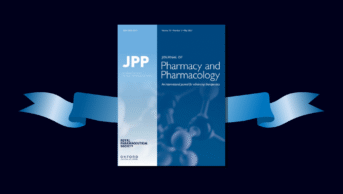
Shutterstock.com
The average time taken to approve the set-up of clinical trials in the UK has fallen from 91 days to 41 days, the Medicines and Healthcare products Regulatory Agency (MHRA) has announced.
In a statement published on 7 October 2025, the MHRA said findings published in the British Journal of Clinical Pharmacology on 6 October 2025 showed that reforms to its review process for trials “are delivering consistently strong results, with 99% of applications reviewed within statutory timelines, and most completed well ahead of target”.
It said these changes — along with the introduction of artificial intelligence (AI) methods and a broader review of its ways of working — had cut the approval time for trials from 91 days in 2018 to 41 days in June 2025.
The study, conducted by the MHRA with researchers from the University of Liverpool, reviewed more than 4,600 clinical trials’ initial applications and amendments in the first year of the MHRA’s risk-proportionate approach, which launched in August 2023.
“Almost all initial applications (99%) were completed within the statutory 30-day timeframe, and 99.9% of amendments within 35 days – with many decisions delivered well ahead of target,” the MHRA said.
As part of reforms to the clinical trial review process, a fast-track route allows some lower-risk studies to approved in 14 days.
The MHRA said that the addition of AI — which is now being introduced to support assessors in reviewing complex data and to improve consistency — has also helped cut the average approval time for clinical trials to 41 days.
The MHRA is using two bespoke AI tools: the Knowledge Hub, which helps assessors to spot common issues in past applications so that they can advise trial sponsors on applications, and the Good Manufacturing Practice (GMP) Compliance Checker, which verifies manufacturing documents in “seconds instead of hours”, allowing experts to focus on complex safety assessments.
In addition, the regulator is undertaking a ‘combined review’ process with the Health Research Authority, enabling it to run ethical and regulatory assessments in parallel, “cutting duplication for researchers and industry”.
Lawrence Tallon, chief executive of the MHRA, said: “By more than halving approval times through digital tools with proportionate oversight that prioritises patient safety, we are increasing the efficiency and attractiveness of the UK’s clinical trial ecosystem and reinforcing our global reputation as a leading destination for cutting-edge research.”
Amira Guirguis, chair of Royal Pharmaceutical Society Science and Research Committee, commented: “This is a major milestone in health innovation and a welcome step forward in improving access to novel and potentially life-saving treatments for patients. Cutting clinical trial approval times from 91 [days] to 41 days, and the use of digital platforms and artificial intelligence tools, shows how regulation can adapt and evolve to support both safety and efficiency.
“Medicines are a fundamental part of our health services, and life sciences are a crucial part of the UK’s economy. As the government looks to implement its life sciences sector plan and ten-year health plan, it is vital that pharmacy leadership is retained within the multidisciplinary team and across the system, from commissioning through to delivery, to support patient access to medicines, ensure best use of the NHS budget, and boost economic growth.”
In September 2025, a report from the Association of the British Pharmaceutical Industry ranked the UK as “weak” for its clinical trial set-up times, based on 2022 data, and “moderate” in terms of overall number of clinical trials, set-up times, enrolment, quality and capacity of clinical trials infrastructure, visa access, and genomics infrastructure and expertise.
Legislation to speed up clinical trial approvals in the UK was laid in Parliament in December 2024.
The changes to the regulations are due to come into force in April 2026.
In June 2025, the government announced that patients were able to sign up to take part in clinical trials via the NHS App.
At the time, it said it was particularly encouraging underrepresented groups, including young people, black people and people of South Asian heritage, to sign up.


